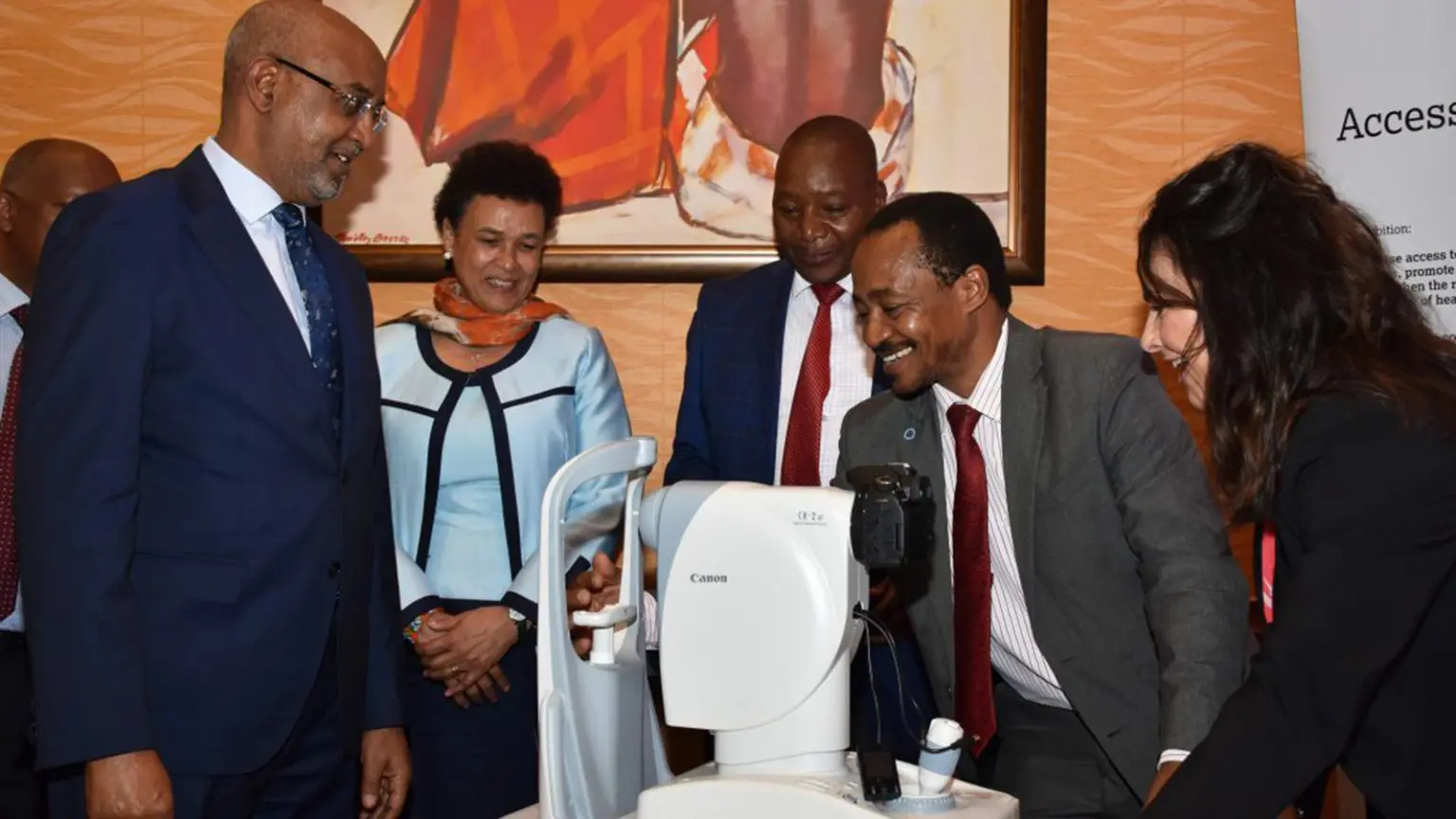KENYA – AstraZeneca, a global pharmaceutical corporation, has supplied Kenya’s Ministry of Health with digital non-mydriatic research equipment that employs retinal cameras to assess a patient’s risk of already having or developing diabetes and hypertension through a single retinal screening.
The technology will boost the nation’s screening ability for noncommunicable diseases (NCDs) and enhance local research capacity by assessing the risk or existence of problems caused by hypertension and diabetes using a single retinal scan.
Researchers from the Kenya Medical Research Institute (KEMRI), Kenyatta National Hospital (KNH), The University of Nairobi (UON), and the Aga Khan University Hospital will employ cutting-edge medical equipment for non-invasive illness detection (AKUHN).
The non-invasive technology is being introduced at a time when Kenya has reported a high and rising prevalence of risk factors for NCDs, including unhealthy diets, excessive alcohol and tobacco use, high blood pressure, a high body mass index, and high cholesterol, high blood glucose, and physical inactivity.
The top five killers in the world, cardiovascular diseases, malignancies, chronic lung diseases, diabetes, and mental health problems, account for the majority of non-communicable disease burden, according to Amref Health Africa in Kenya.
The Ministry of Health has warned about the growing prevalence of diabetes and hypertension among Kenyans. Diabetes prevalence has risen from 2% in 2015 to 3.3%, with experts predicting a further increase to 4.5% by 2025.
The ministry also warned that despite just 8% of hypertensives in Kenya receiving treatment and only 4% of them having their blood pressure under control, the prevalence of hypertension remained high.
Dr Rashid Aman, Chief Administrative Secretary for Health, stated that late manifestation, late detection, and delayed identification of complications in individuals diagnosed with hypertension and diabetes have led to more dangerous and severe cases when compared to other developed nations.
According to CAS Dr Rashid Aman, the increased burden of noncommunicable diseases in Kenya further burdens the health system, impeding the decrease of morbidity, mortality, and economic impact of NCDs in the nation.
Following that, the Ministry of Health and AstraZeneca collaborated to provide cutting-edge digital technology for noncommunicable illnesses to prestigious research institutes, providing researchers with an alternative to intrusive screening methods now in use.
At the same time, a person’s retina will be checked for hypertension and diabetes. The picture will then be analysed against millions of prior retinal scans saved in the cloud using Machine Learning and Artificial Intelligence (AI).

